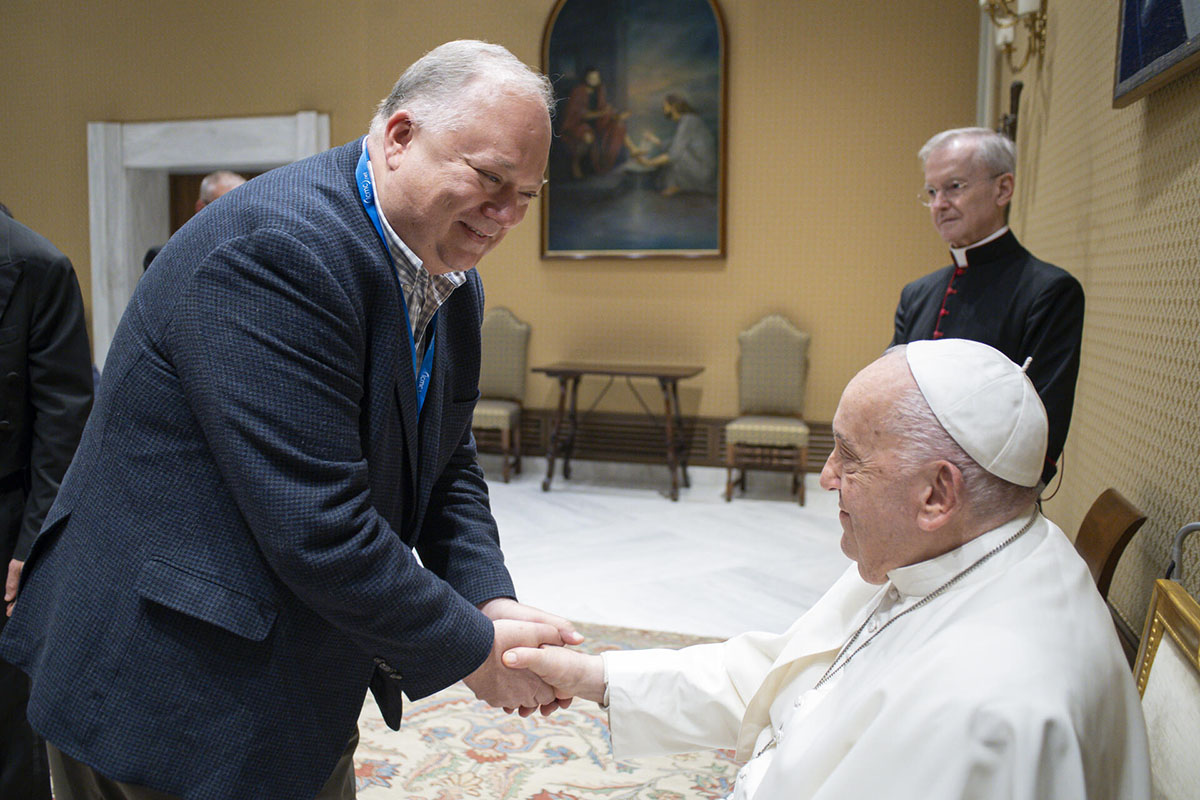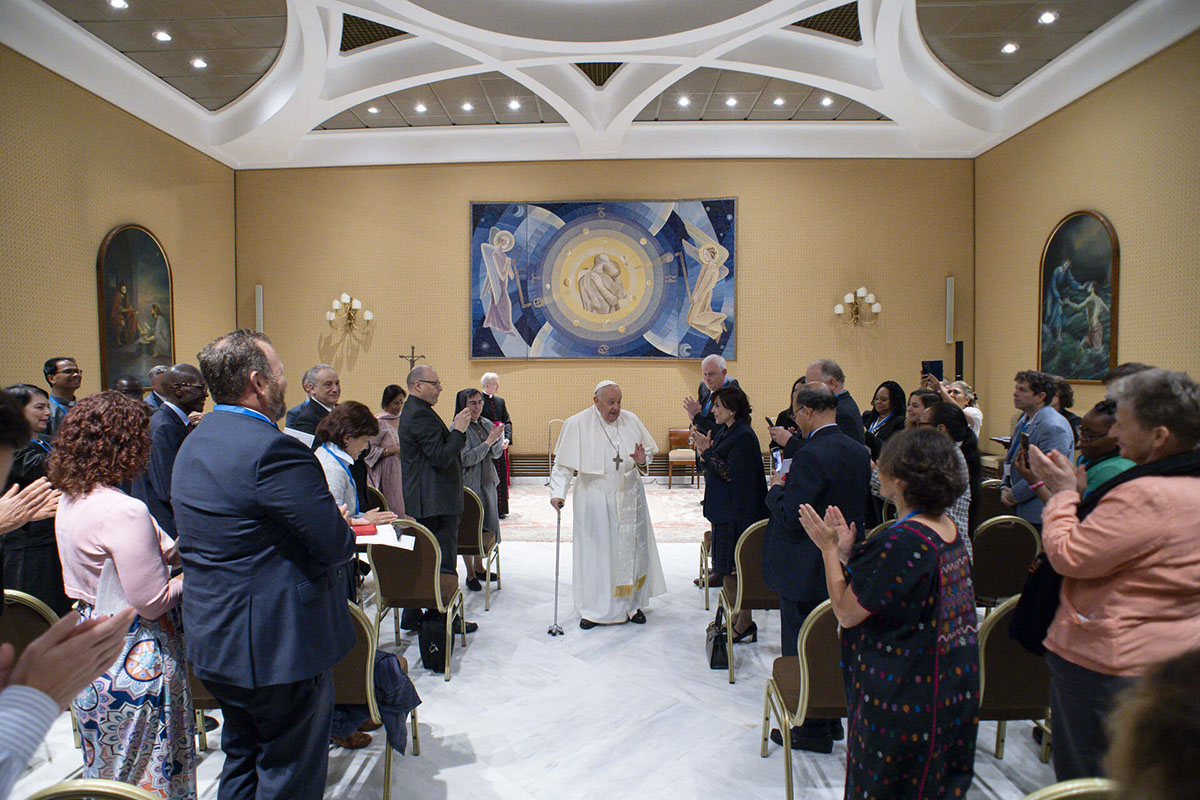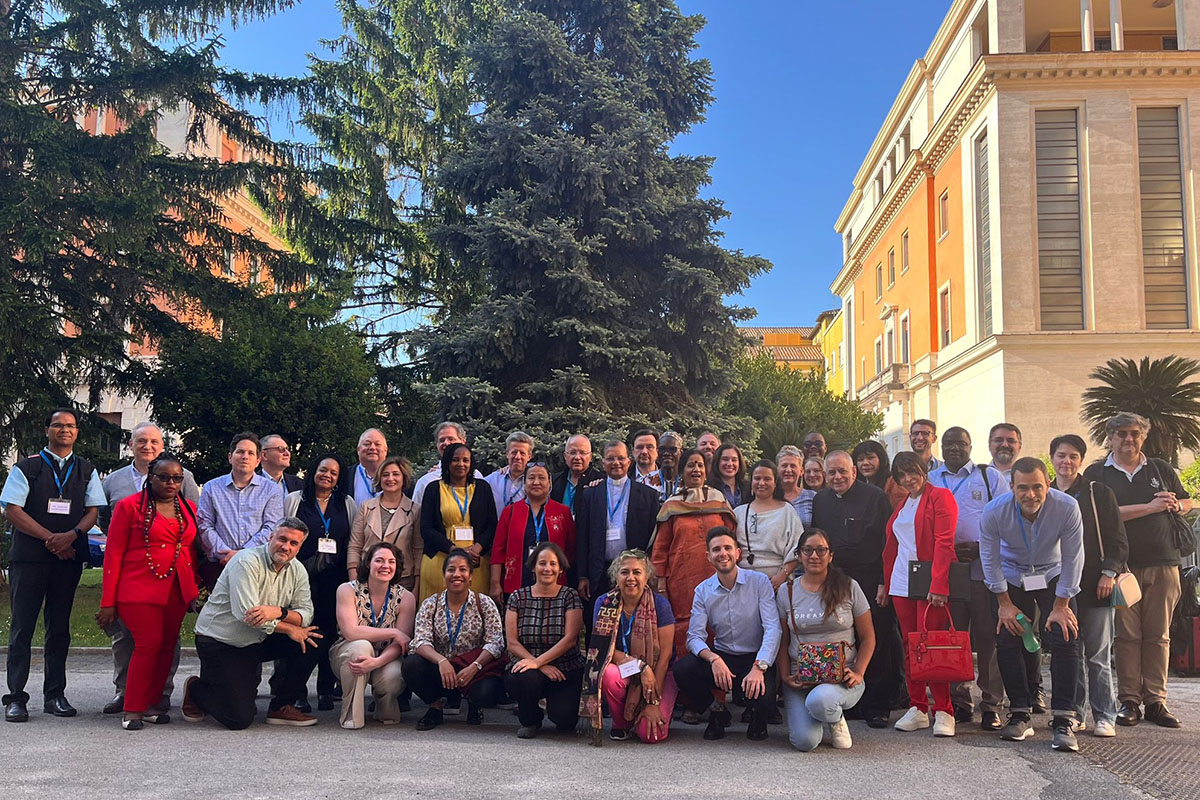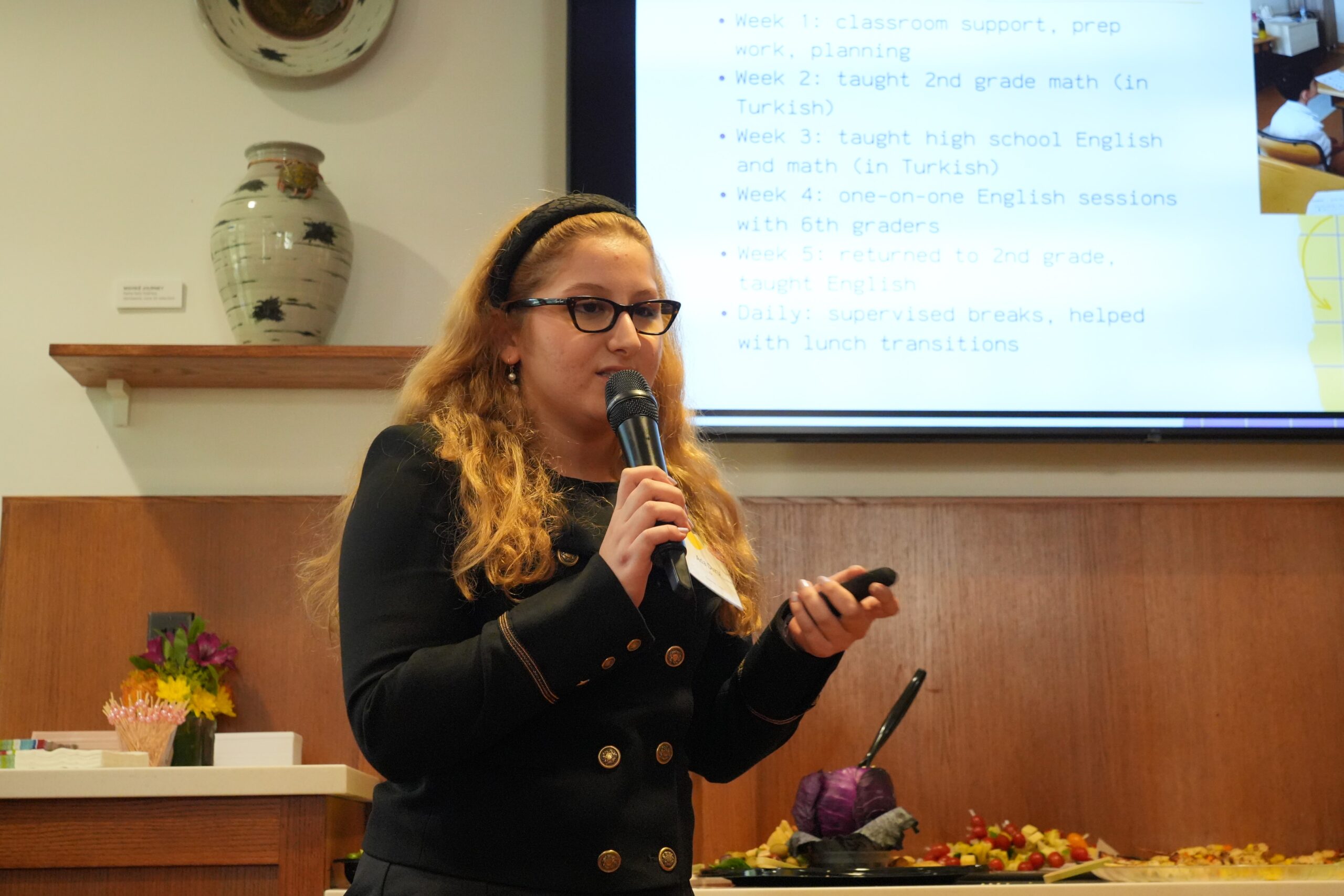Professor Dan Graff presents research on just wage at Vatican ‘Future of Work’ conference
May 23, 2024
Artificial intelligence, threats to democracy, climate change, and mass migration are having profound effects on the world of work — effects that will become more pronounced in coming years.

Professor Dan Graff, a historian and director of the Higgins Labor Program at the Institute for Social Concerns, contributed his expertise to an important global conversation on these issues earlier this month in Rome.
The conference, organized as part of a Vatican project called The Future of Work: Labour after Laudato Si, was a response to Pope Francis’s call for the care of creation in the encyclical Laudato Si and his exhortation Laudate Deum.
Graff was one of 60 people from around the world, and one of only seven from the U.S. and Canada, who were invited to the conference. The diverse group included representatives from academia, business, faith communities, government agencies, NGOs, trade unions, and grassroots advocates. Representatives from the Holy See, the International Labour Organisation, and the World Council of Churches were among the participants. Through panel discussions and workshops, the group sought to understand global issues of work more deeply and drafted a roadmap for protecting the human dignity of working people in these times.
The three-day program began on May 8 with a private audience with Pope Francis at Paul VI Audience Hall. “The world needs renewed commitment, a new social compact that can bind us together, older and younger generations, for the care of creation and for solidarity and mutual protection within the human community,” the Pope said while thanking the group for the work they would undertake at the conference.
Graff said it was meaningful that the conference began with a papal audience. “It felt like Pope Francis was welcoming us and sending us off to do this important work,” he said.

The Future of Work project launched in 2016. The first phase of the project involved research and culminated in a comprehensive report, “Care is Work, Work is Care,” published in 2020. From there, regional groups held dialogues to share perspectives and lived experiences — including a meeting that the Institute for Social Concerns co-sponsored last summer in Chicago with a focus on the hospitality sector.
The conference in Rome prioritized five themes: decent work in the food supply chain; decent work in mining and other extractive industries; social justice, human dignity, and inequality, especially with respect to marginalized groups; protection for migrants and their families; and just transition in the context of economic crises and climate change.
Graff was on the conference’s opening panel in which each speaker addressed one of the themes from different perspectives. He presented on the issue of social justice, dignity, and inequality by introducing the Just Wage Framework — a tool the Higgins Labor Program developed to identify the core criteria that determine the justness of any given wage scenario. The framework is rooted in Catholic social tradition’s commitments to the dignity of work, solidarity, and workers’ participation in economic decision-making.
The Future of Work conference employed a methodology of common social discernment, which promotes dialogue with various stakeholders to collectively diagnose issues and negotiate agreements. As such, the lived experiences of workers were essential to the dialogue.
Graff said that approach produced conversations with a blend of bird’s-eye views from experts working in large global organizations as well as on-the-ground expertise from working people and advocates who are living close to these issues in different parts of the world. “It led to discussions of the big labor questions that are happening everywhere, but with consideration for the different impacts these issues are having in different locations,” he said. “It was a profoundly moving experience for me to participate in important conversations with diverse stakeholders and imagine future steps toward inclusive economic development.”

The next step will be finalizing the roadmap that participants worked on during the conference. The plan’s aim is to enrich the global understanding of work-related issues by publishing research and focused reflections, enable transformation within organizations, communities, and institutions through training and capacity building, and advocate in local, national, and international forums for decent work and the care of workers.
“There was a sense in the group that this is an inflection point for issues related to work, because of climate change, migration, and threats to democracy,” Graff said. “There was a sense of crisis and opportunity. That’s what I felt in the electricity of that gathering.”
Read more about The Future of Work: Labour after Laudato Si.
Related Stories
-
ReSearching for the Common Good: Solbee Kang
-
Bridging worlds through art—Kyla Walker joins institute as international poetry justice fellow
-
The power of encounter—RISE Hometown prepares incoming students for learning in service of justice at Notre Dame
-
The beauty of everyday democracy—Institute convenes scholars, practitioners, Luke Bretherton for democracy conference
-
Catalyzing collaborations with South Bend citizens for the common good—Institute launches South Bend Citizens Collaboratory





